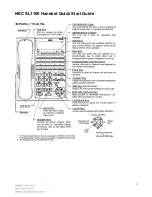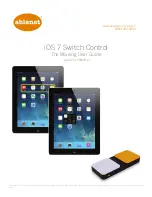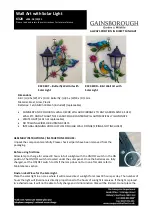
4
Important Notes
Danger
When loosening the electrode steam or hot water might escape.
This presents the danger of severe scalds to the whole body.
It is essential not to mount or dismantle the electrode unless the boiler pressure is
verified to be 0 bar.
The electrode becomes hot during operation.
Touching the hot equipment presents the risk of severe burns to hands and arms.
All installation and maintenance work must only be performed when the equipment is
cold.
If the internal ceramic insulation of the level electrode NRG 111-11 breaks hot steam
may escape through the lateral relief vent of the electrode stem.
This presents the danger of severe scalding!
Do not stand close to the electrode during operation.
Usage for the intended purpose
Use level electrodes NRG 16-11, NRG 17-11, NRG 19-11 and NRG 111-11 only in conjunction with
level switch NRS 1-7 for low-level limiting (low level alarm). The equipment must not be used in
explosion risk areas.
PED (Pressure Equipment Directive)
Safety note
The equipment must only be installed and commissioned by qualified and competent staff.
Retrofitting and maintenance work must only be performed by qualified staff – who through adequate
training – have achieved a recognised level of competence.
ATEX (Atmosphère Explosible)
The equipment constitutes a simple item of electrical equipment as defined in DIN EN 50020 section
5.4. According to the European Directive ATEX 94/9/EC the equipment may only be used in potentially
explosive atmospheres if it is provided with approved Zener barriers.
Applicable in Ex zones 1, 2 (1999/92/EC). The equipment does not bear an Ex marking. The suitability
of the Zener barriers is certified in a separate document.
The equipment fulfills the requirements of the PED 97/23/EC. The equipment can be used with fluids of
group 1 and 2. With CE marking (except for equipment according to section 3.3 of the PED).
Attention
The name plate specifies the technical features of the equipment. Note that any piece of
equipment without its specific name plate must neither be commissioned nor operated.





































